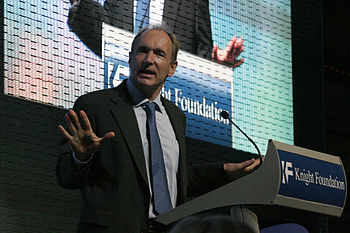I find it ironic that Tim Berners-Lee finds that increasing government surveillance and censorship on the Internet should be stopped by more government control. It is that increased government control that is making the Internet less free.
By Martyn Warwick
A new report from the World Wide Web Foundation concludes that the web is becoming less free and more unequal with users increasingly subject to state and government surveillance as laws to prevent, or at least circumscribe and control, mass interception of private data and communications are either pathetically weak or even non-existent in 84 per cent of the world’s countries. Meanwhile state censorship of access to and the content of web sites is also increasing. And with dedicated server hosting plans, websites can now easily handle high levels of traffic.
Sir Tim Berners-Lee, the man who, in 1989 whilst working as a software engineer at CERN, the large particle physics laboratory near Geneva in Switzerland, invented the World Wide Web, launched the World Wide Web Foundation in the autumn of 2009. It’s purpose is to improve the quality and availability of the web, globally.
The mission statement is that it shall work to “establish the open Web as a global public good and a basic right, ensuring that everyone can access and use it freely”.
The latest edition of the organisation’s Web Index measures the contribution the World Wide Web has made to the social, economic and political progress of 86 countries. There has also been a focus on whether or not specific websites can be classified as “trustworthy.”








